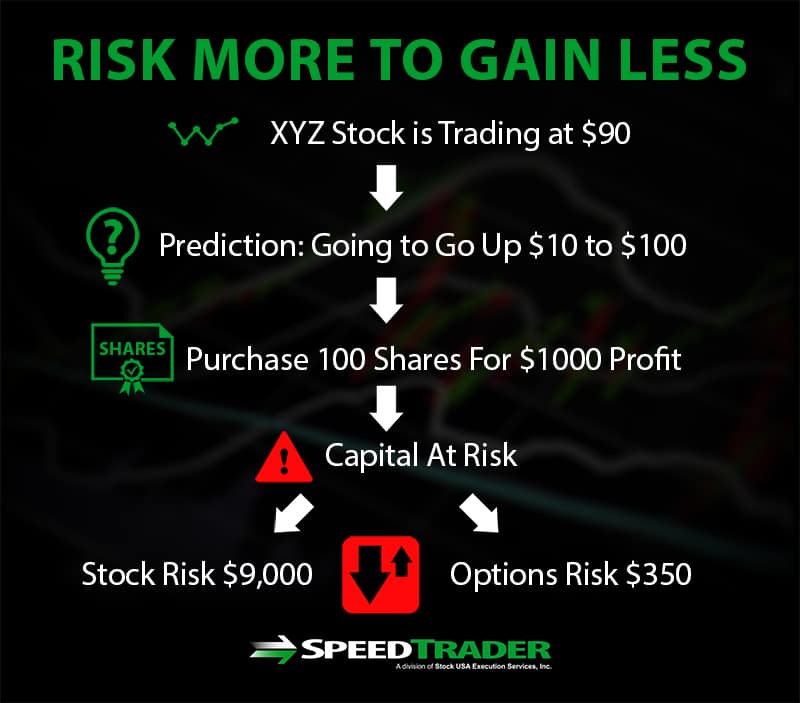Even though at earnings announcements, value stocks usually outperform. However, options seem to be more attractive for these purposes than stocks due to the leverage they provide and the positive skewness of their payoffs. Contrary to the practices noted above, there are ways for retail investors to use options in a manner that may help to preserve capital.
What is Equity & Equity Derivative - Features of Futures & Options Trading | Karvy Online
One of those ways is to utilize a protective put strategy. A protective put is analogous to the nature of insurance.
The main goal of a protective put is to limit potential losses that may result from a decline in an equity price. Adopting such a strategy does not put a limit on potential profits.
The growth potential of equity determines profits from the strategy. However, a portion of the profits is reduced by the premium paid for the put. On the other hand, the protective put strategy does create a limit for potential loss.
Intrinsic Value and Time Value
Profits will compensate for any losses in the long equity position below the strike price of the put option in the option. A protective put strategy is typically employed by a bullish investor who wants to hedge their long equity position.
- Discover how to trade options in a speculative market!
- Options Knowledge Center | Robinhood.
- best binary option expiry time?
- An Example of How Options Work.
The investor probably does not want to sell their ABC holdings because they believe the stock might appreciate further. The investor can purchase a put option against the stock to protect a portion of the gains for as long as the option contract is in force. In my view, the above strategy is what retailer traders should be learning and focusing on first. The key to building wealth is the preservation of capital. One does not watch a YouTube video and becomes a successful day-trader overnight, let alone a successful options trader. Remember that options are derivatives — and one should be an expert in the underlying in this case, equities before even thinking about trading derivatives.
December 18, Commentary.
The beauty of investing in stocks is simplicity: You buy a stock, hoping its price will rise so you can sell at some point down the road at a higher price. That applies whether you plan to hold a stock for years or try your hand at day trading — actively buying and selling stocks over short time frames like days or weeks. Get step-by-step instructions for how to buy stocks. After researching the stocks you wish to invest in — ones that you believe have a growth potential that fits your time horizon — you shouldn't need to obsessively check on them every day. Commissions for stock trading vary, but many online brokers have recently eliminated them completely, so shop around before opening an account.
Looking for a more tactical approach to investing, one with a smaller investment requirement and flexibility regarding timing or downside risks? Options may be up your alley. With options, the associated time period for your investment is inherently shorter, making them more appealing to traders who buy and sell regularly.
All options contracts have expiration dates, which can range from days to years. While many people like the flexibility afforded by options — namely, time to see how a trade plays out and the ability to lock in a price without an obligation to buy — they do add complexity to the investing process. How high or low it will move from its current price.
Options trading requires you to learn a new vocabulary of terms like puts, calls and strike prices, which may lead you to believe these assets are riskier than stocks. That notion may be overstated, especially because investors can let an option expire and incur no further financial obligation other than the premium paid and associated trading costs. For example, buying a put option will help mitigate potential losses if the value of a stock you own goes down. Options trading requires a more hands-on approach than investing in stocks.
You can set alerts through your online broker. Also, some options strategies are riskier than others, so make sure you understand the trade in advance.
Option (finance)
Hint: Many experts recommend avoiding daily or weekly options, which tend to be a better fit for more seasoned traders. Another downside of options trading is the related costs, which can be higher than for stocks. Finally, as with stocks, be sure to factor in capital gains taxes. Deciding whether stocks or options are better for you is entirely a personal decision, based on your investing style.

Beginner investors and those who prefer simplicity generally will stick to stocks for their straightforward nature. Those who favor an active investment approach and love to watch the market may find options appealing. After all, options traders inherently become stock investors if they exercise call options. Meanwhile, many stock traders use put options as a hedging mechanism. Many or all of the products featured here are from our partners who compensate us. This may influence which products we write about and where and how the product appears on a page.